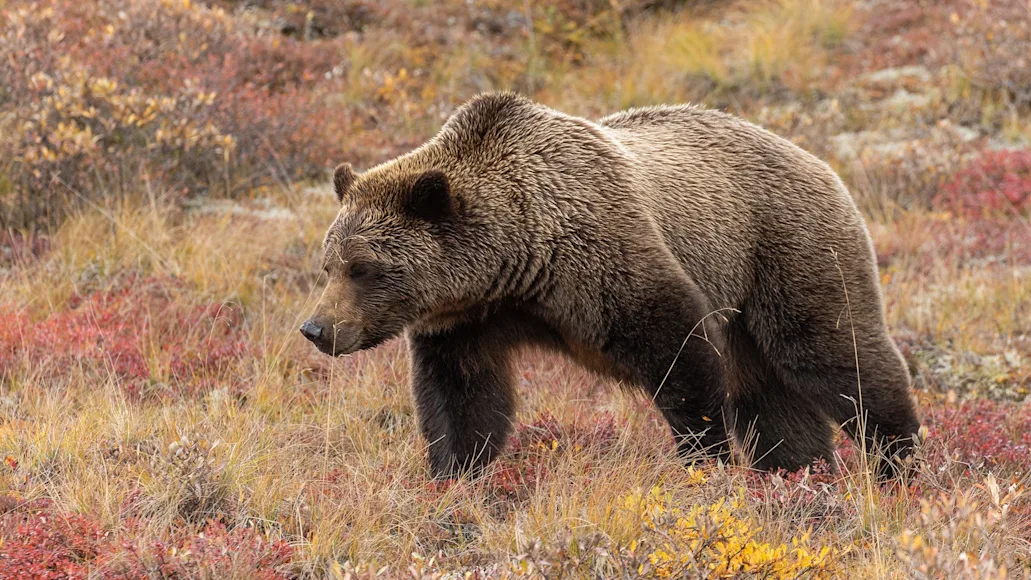How much does a grizzly bear weigh? Easy question, right? Well, not so fast. A lot of people use the term “grizzly bears” very broadly, so first we need to clear up exactly which bear we are talking about. The grizzly bear (Ursus arctos horribilis) is one of several subspecies of brown bear
(Ursus arctos). In other words, all grizzly bears are brown bears, but not all brown bears are grizzlies. Kodiak bears (Ursus arctos middendorffi), for example, are not grizzlies, and neither are coastal brown bears generally. Here, we are talking just about grizzly bears—Ursus arctos horribilis.
Further complicating things is the fact that grizzlies come in at different weights depending on all sort of things, including the time of year and the age and sex of the animal. So, on the low end, we’re talking 5 pounds, and on the high end 700 pounds or more. So, how much does a grizzly bear weight? It’s complicated. Here’s a full breakdown.
How Much Does a Grizzly Bear Weigh? The Short Answer
What technically separates grizzly bears from coastal brown bears and Kodiak bears is that they do not have ready access to marine animals to eat—like dead whales. As a result, grizzlies weight less. Male grizzly bears can weigh around 700 pounds on the high end and average around 400 to 600 pounds. Females weigh around 250 to 350 pounds, and cubs weigh around 5 pounds when they emerge from their dens.
How Grizzly Bear Weight Changes Depending on Time of Year
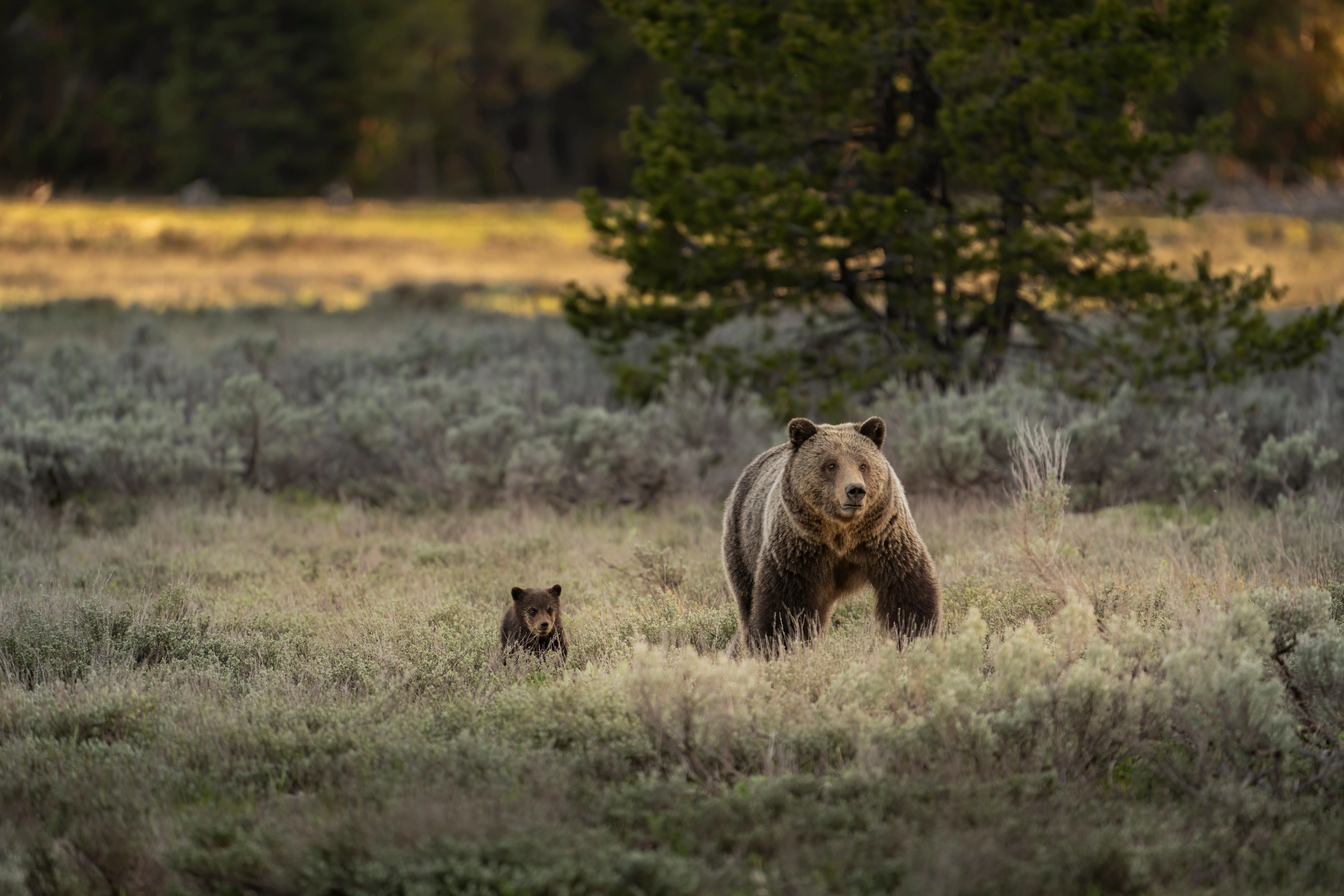
A female grizzly bear and cub in Grand Teton National park. Grizzly cubs come out of the den weighing about 5 pounds, and they start putting on weight quickly. Danita Delimont / Adobe Stock
Before denning, grizzly bears will consume enough food to pack on more than 3 pounds of body weight per day. This feeding frenzy lasts two to four months during the late summer and early fall and is called hyperphagia. In that time, bears search for the most food they can find and add anywhere from 180 to 360 pounds to their body weights, consuming an average of 20,000 calories per day. That equates to 35 Big Macs, 145 gallons of ice cream, or 6,666 M&Ms every day.
Depending on where they are, grizzly bears will den starting in October and November and go without eating, drinking, urinating, or defecating for four to six months. During the denning season, they may lose 30 percent of their body weight, so their weight is constantly fluctuating throughout the year.
How Much do Grizzly Bears Weigh Compared to Other Subspecies
Of the brown bears in North America, there are two subspecies: grizzlies and Kodiak brown bears. There are also coastal brown bears, and they are named under the taxonomy Ursus arctos.
Kodiak bears only live on Kodiak, Afognak, and Shuyak Islands in southwestern Alaska. Grizzlies live in Alaska, Canada, and the Lower 48 states of the U.S. Coastal brown bears live on the coasts of Alaska, Canada, and Russia, and other brown bears live in northern Japan, northern China, and parts of Europe.
Grizzly Bear (Ursus arctos horribilis)
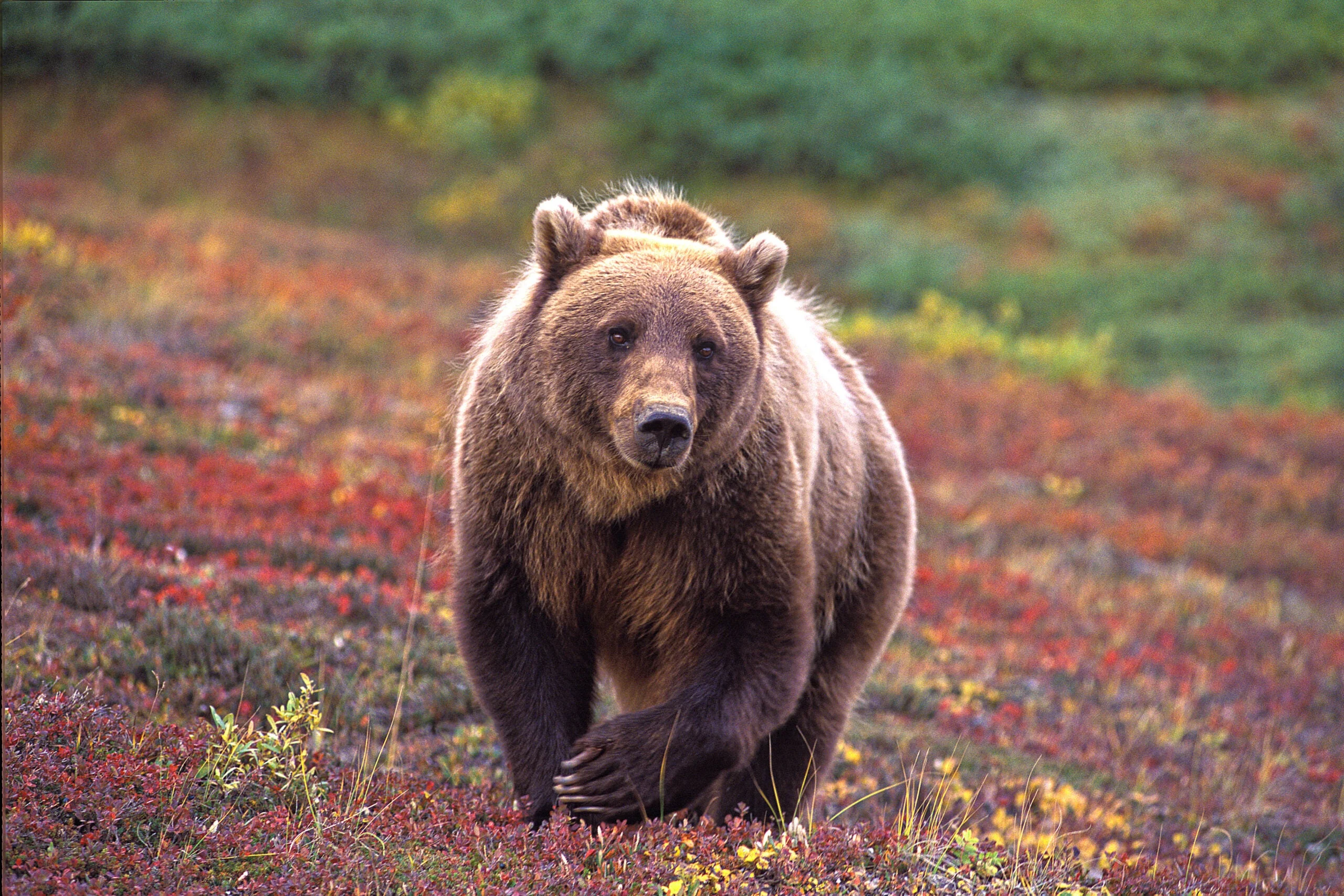
Grizzly bears may be the smallest of the North American brown bears, but they’re still huge. Kennan & Karen Ward / Adobe Stock
Grizzly bears are only found in North America. Their range extends down from Alaska to the Rocky Mountain West. Grizzlies are omnivorous, eating fish, berries, plants, fungi, all manner of other mammals, and just about anything else they can get their hands on.
Grizzly Bear Male Weight: 400 to 700 pounds
Grizzly Bear Female Weight: 250 to 350 pounds
Grizzly Bear Cub Weight: 5 pounds
Coastal Brown Bear (Ursus arctos)
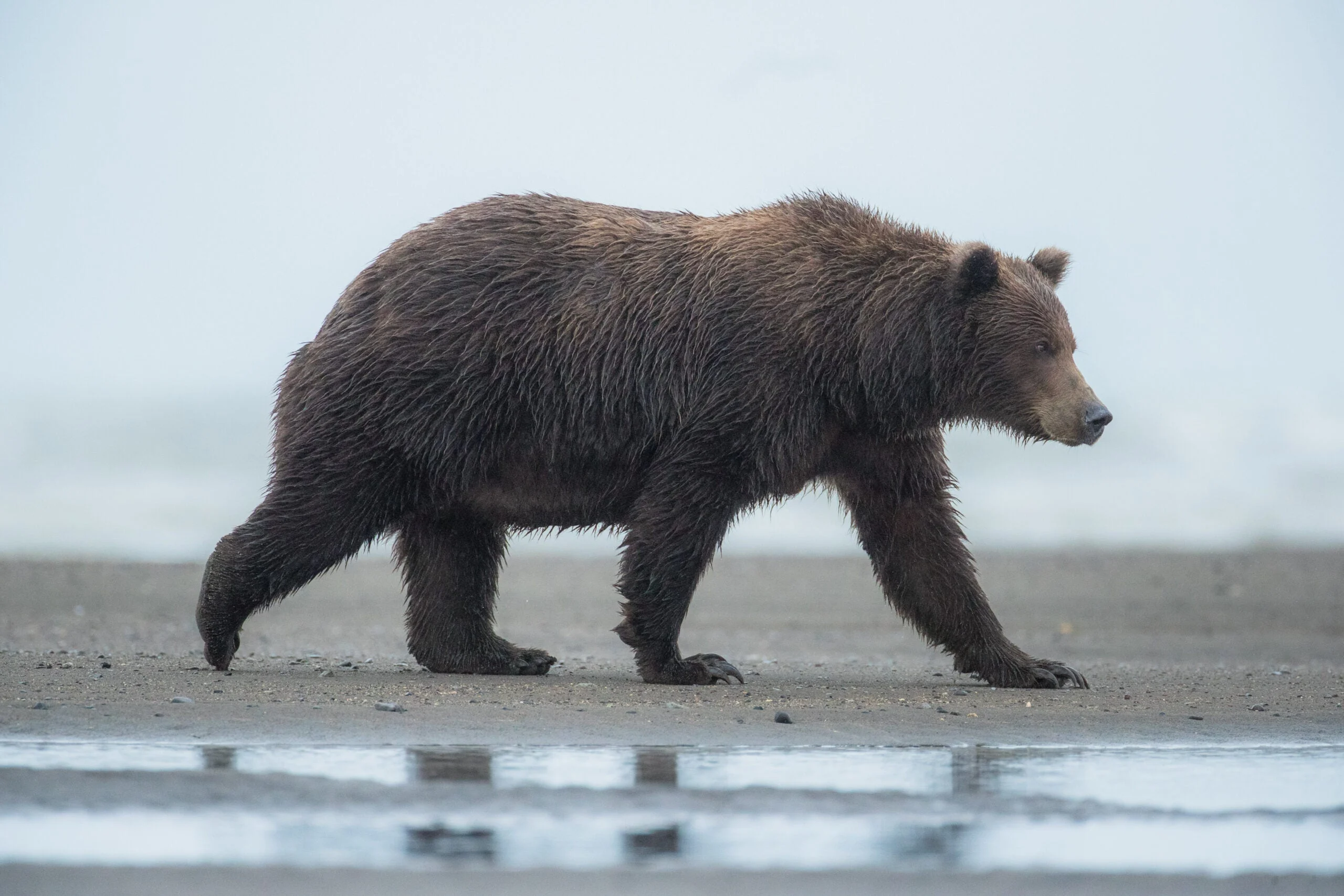
Because coastal brown bears have access to loads of marine life, they are heavier than grizzly bears. vivek / Adobe Stock
Brown bears mostly live in the coastal areas of Alaska, Canada, and Russia. There, they have access to marine wildlife, which they use to really pack on the pounds. On average, coastal brown bears eat more meat than their inland cousins.
Coastal Brown Bear Male Weight: 700 to 1,500 pounds
Coastal Brown Bea Female Weight: 500 to 700 pounds
Coastal Brown Bea Cub Weight: 15 to 20 pounds
Read Next: How Fast Can a Bear Run: A Species-by-Species Guide
Kodiak Brown Bear (Ursus arctos middendorffi)
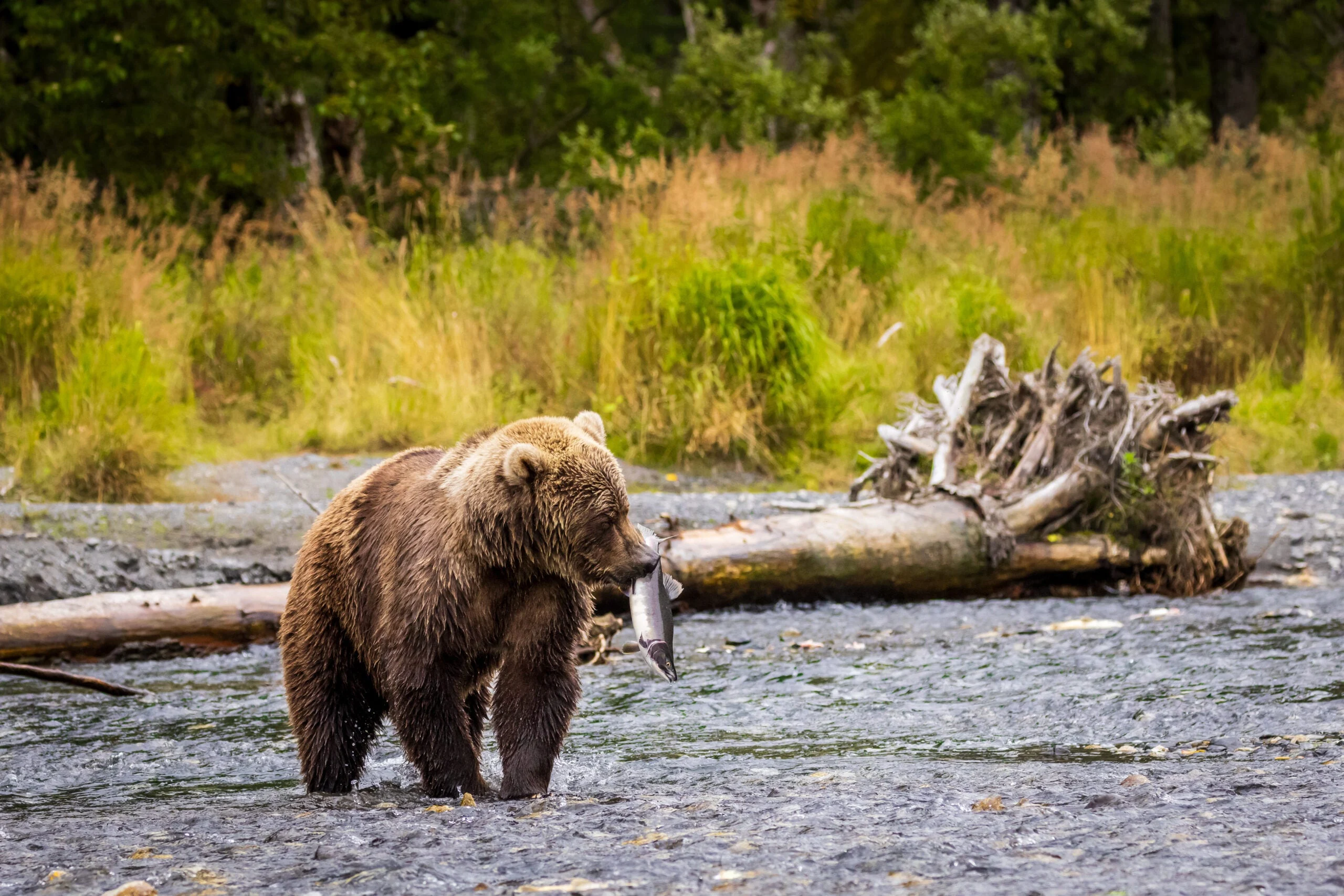
Kodiak brown bears load up on salmon and other marine wildlife. Mark A. McCaffrey / Adobe Stock
Kodiak bears are absolutely huge, and with polar bears out of the equation, they are the biggest bears on the planet. On average, they weigh as much as a brown bear, but some grow to be exceptionally heavy. The biggest known Kodiak brown bear was named Clyde, and he lived at the Dakota Zoo in North Dakota. Clyde weighed 2,130 pounds when he died, which is more than three Harley-Davidson Fat Boy 114 motorcycles.
Kodiak Brown Bear Male Weight: 800 to 1,500 pounds
Kodiak Brown Bear Female Weight: 500 to 700 pounds
Kodiak Brown Bear Cub Weight: 15 to 20 pounds

